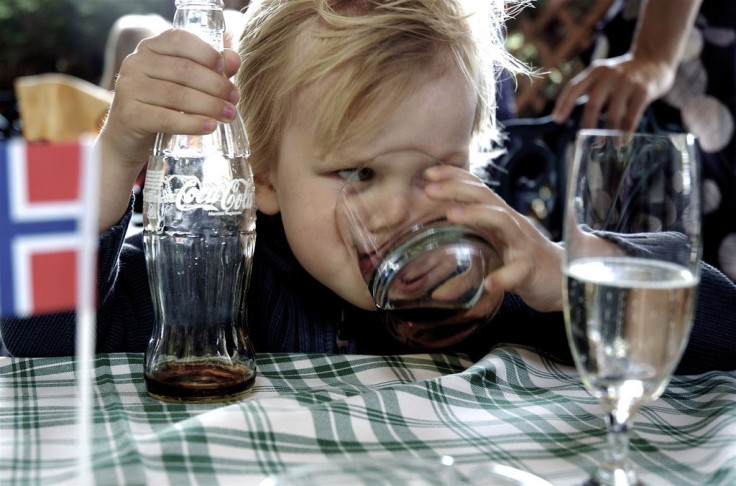EU Report Warns Parents Against Giving Children Alcohol

A child's first sip of beer or wine, in some cases administered by a lawn-mowing dad in sweat-stained shirt or more formally at a holiday dinner table, marks a rite of passage in many societies of the world.
In most European cultures, there persists the belief that controlled portioning of alcohol for children inculcates a more refined, temperate drinking culture, something more akin to the wine-drinking Mediterranean and less to the draft-pounding Northerners.
However, a new study commissioned by the EU shows that even small quantities of alcohol can lead to long-term health problems with the development of alcoholism and, in girls, possibly greater risks of infertility and breast cancer. Dr. Aric Sigman, a fellow of the United Kingdom's Royal Society of Medicine, warned the EU's "working group on childhood and adolescence" against the idea that such administration of alcohol leads to responsible drinking.
Given that "even small amounts" of alcohol may harm the young brain, Sigman advised parents to delay the introduction of alcohol to their children until later ages, at least until after 15. The researcher noted a U.S. government-funded study that found a "far greater" risk of alcohol dependency among those who had their first drink before the age of 18. Further, the World Health Organization (WHO) says, "The longer the onset of consumption is delayed, the less likely it is that alcohol-related problems and alcohol dependence will emerge in adult life."
In an ideal world, Sigman said, people would never drink before age 25, when the brain reaches a structural maturity, though he admitted that 16 might be more realistic — particularly for parents who fear that prohibition against drinking at home might increase the allure of alcohol outside the home.
Sigman recommended that the EU standardize drinking ages in bars and restaurants across Europe, however, to 18.
"Protecting our young people from the harm of drinking means that now, in the light of new information about the effects of alcohol, it is necessary to review the way the entire EU views concepts of adulthood and drinking age," Sigman said.
Eric Appleby, of the UK's nonprofit Alcohol Concern, said he agreed with the report. "It may feel that introducing children to alcohol in a safe and controlled environment at home is the right thing to do, but all the research indicates that the younger someone starts drinking, the more likely they are to have problems with alcohol in later life," he said.
The report comes amid rising alcohol-related health problems among young adults in the UK, with the number of hospitalizations for people under the age of 30 more than doubling between 2002 and 2012, the Daily Mail reported. In total, UK hospitals have been seeing an increase of some 1,000 alcohol-related admissions per year.
Britain's health officials recommend that parents don't give alcohol to children at all, particularly to those under the age of 15.



























